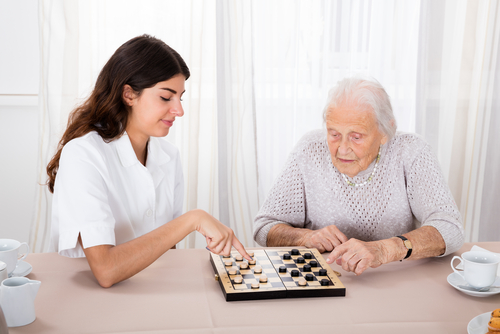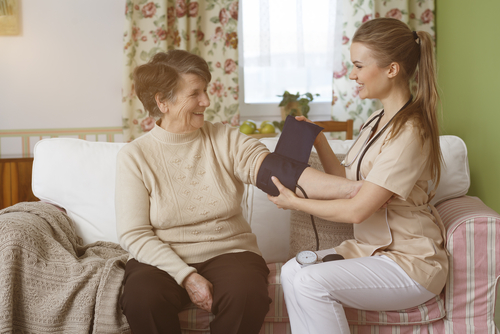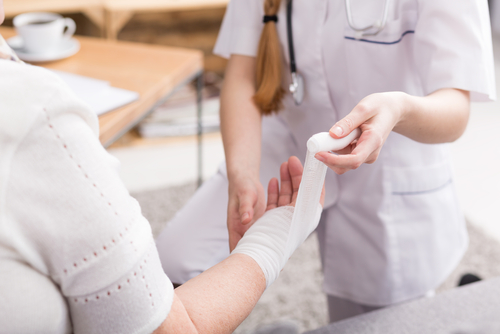Baby Boomers are having a significant impact on the healthcare field. With the continued aging of a significant number of our population, the increased need for assistance, especially for in home elder care services, is exploding. Most elderly would like to stay in their own home for as long as possible if not their entire lives. They want to continue enjoying their independence and privacy, as well as the comfort of familiar surroundings.

At the same time, they may find that their children and family members, whom they would typically rely on for support, don’t live in the same area. In addition, with careers and work-related demands, family members may not be able to provide primary elder care services. The result is that more seniors are receiving elder care services from a professional agency specializing in in-home care.
Not only is this a solution for the senior needing assistance, but it is a wonderful job opportunity for the individual who is interested in a career in healthcare. There are all levels of caregiving in home care organizations. Some are entry-level positions that require minimal training and expertise, and some are at the Registered Nurse level, which requires a significant amount of education and requires a state license to practice.
Providing in-home elder care services is an ideal way to find out if healthcare is the right career choice for you, and it provides the opportunity for growth in your career. The availability of home care through a senior care company is a “win/win” situation for both the caregiver and the senior receiving assistance. These are the four basic levels of caregiver and what each can provide.

- Personal Care Assistants. A Personal Care Assistant is an unlicensed position. These caregivers provide companionship and conversation. They will go for walks with the senior, play board games or puzzles, or read to the senior. These are activities to keep your loved one busy and involved during the day. The PCA may also help with light cleaning, meal preparation and feeding. They also may provide transportation to appointments or shopping. In some cases, they may help with bathing, toileting, dental care, grooming and dressing. Usually the Personal Care Assistant has a minimal amount of training.
- Home Health Aide. The Home Health Aide can provide all the services of the Personal Care Assistant, with additional services. The Home Health Aide is trained and certified according to the requirements of the state they work in. They are able to take vital signs of blood pressure, pulse, respirations, and temperature. They can assist the senior with bathing, dressing, and toileting.
- Licensed Nursing Assistants or Certified Nursing Assistants. These caregivers are able to assist with all the tasks of the Personal Care Assistant and Home Health Aide. In addition, the CNA can assist with dental care and feeding. The Certified Nursing Assistant is also able to perform some medical tasks under the direction of a Registered Nurse. This can include setting up medical equipment, cleaning medical equipment, dressing changes, monitoring infections, and assisting with range of motion exercises. The Certified Nursing Assistant is also expected to be observant of any changes in the elderly person’s physical, mental, and emotional health and report those changes to the RN.
- Registered Nurse. A Registered Nurse has a minimum of an Associate Degree in Nursing and has passed the nursing exam administered by the state in which they intend to work.

If they meet all the requirements to be licensed by that state, they then can be employed as an RN. This enables them to assist the doctor in all procedures; administer medications, including IV medication; manage the health care of the elderly, including diabetes and other chronic diseases; and educate the patient and family about the health issues of the elderly patient.
The Registered Nurse develops the care plan for the elderly patient and monitors the effectiveness of that plan. They will recommend treatments and will monitor the disease progression and need for adjustment of the care plan.
These are the four basic levels of caregiver for in-home elderly care services; however, depending on the agency you are working with and the particular state you reside in, the categories of caregiver may be further divided, resulting in additional levels of care. Look for an agency that will provide an in-home assessment of your loved ones’ needs and, together, you and the agency can decide what level of care will be best for your loved one—one that allows them to stay in their home.

